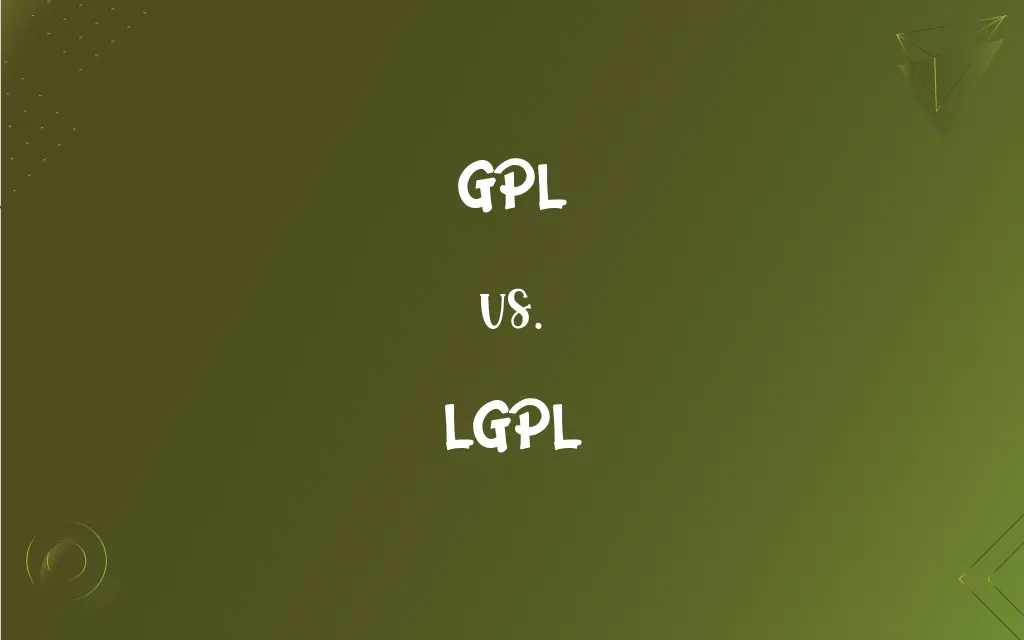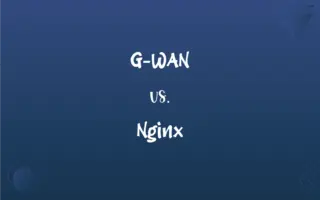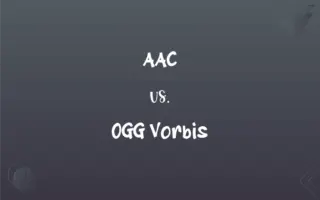GPL vs. LGPL: What's the Difference?
Edited by Aimie Carlson || By Harlon Moss || Updated on June 5, 2024
GPL (General Public License) mandates derivatives to be open-source, while LGPL (Lesser General Public License) allows linking to proprietary software. Both are free software licenses from the FSF.

Key Differences
GPL, or the General Public License, ensures that derivative work also adheres to open-source distribution, enforcing the sharing of source code. LGPL, the Lesser General Public License, while also promoting open-source, allows proprietary linkage, providing a bit more flexibility in terms of linking to non-open-source software.
Under GPL, any derivative work or adaptation must also be distributed under GPL, ensuring a consistent open-source lineage. Conversely, LGPL allows proprietary applications to link to LGPL-licensed libraries without needing to open-source the proprietary code, creating a bridge between open and closed source frameworks.
While GPL insists upon a strong copyleft approach, dictating that derivative work must uphold the same license principles, LGPL provides a more permissive approach, adopting a weak copyleft which allows for inclusion in non-free projects. This difference reflects distinct philosophical stances about open-source development.
Developers using GPL ensure that any project utilizing their code will also be open source, fostering a comprehensive open-source ecosystem. LGPL, while supportive of open-source, allows for broader utilization, including in some proprietary contexts, thereby potentially promoting wider usage of the library.
Both GPL and LGPL aim to protect and empower developers by ensuring acknowledgment and keeping software freely available. GPL provides a more rigid framework to assure this across all derivatives, while LGPL offers a somewhat looser structure, accommodating more varied software distribution models.
ADVERTISEMENT
Comparison Chart
Flexibility
Rigid, all derivatives must be open-source
More flexible, allows linkage to proprietary software
Usage in Proprietary Software
Cannot be included without opening source code
Can be used without opening proprietary code
License Type
Strong copyleft
Weak copyleft
Library Linking
Derivative software must also be GPL
Allows proprietary software to link to LGPL libraries
Intended Use
For comprehensive open source ecosystems
To permit utilization in broader contexts
ADVERTISEMENT
GPL and LGPL Definitions
GPL
GPL prevents proprietary adaptations of open-source software.
GPL ensures derivative works of software like GCC remain open to all users.
LGPL
LGPL is designed to protect the user’s freedom to share and change free software.
LGPL-licensed software like FreeType permits free usage, modification, and distribution.
GPL
GPL ensures that software derivatives are also open-source.
Linux, licensed under GPL, ensures that derivatives like Ubuntu also remain open-source.
LGPL
LGPL allows developers to utilize the code more flexibly than GPL.
LGPL permits proprietary applications to link to open libraries without adopting a full open-source model.
GPL
GPL seeks to ensure freedom to share and change all versions of a program.
GPL grants users of applications like GIMP the freedom to modify and distribute copies.
LGPL
LGPL aims to promote the widespread use of the library across various software.
LGPL permits GNU libstdc++ to be utilized in varied software environments without imposing GPL.
GPL
GPL emphasizes preserving open-source integrity in derivatives.
Programs derived from GPL-licensed software, like BusyBox, cannot be made proprietary.
LGPL
LGPL allows proprietary software to link to open-source libraries.
Proprietary software can utilize libraries like GTK+, which is LGPL-licensed, without open-sourcing their own code.
GPL
GPL requires modified versions to also be GPL-licensed.
Modifying a GPL tool’s code means your tool must also be distributed under GPL.
LGPL
LGPL incorporates a weak copyleft, ensuring the licensed library remains open-source.
Libraries under LGPL, like libpng, remain open-source even when implemented in proprietary software.
GPL
Abbreviation of grams per litre
FAQs
Can I use GPL software in my proprietary software?
Yes, but your software becomes subject to GPL, requiring you to open-source it.
Can I modify GPL software for personal use without sharing?
Yes, modifications for personal use don’t have to be shared, but distribution requires sharing under GPL.
What does LGPL stand for?
LGPL stands for Lesser General Public License.
Is LGPL considered a “weak” copyleft license?
Yes, LGPL is considered weak copyleft because it allows linking with proprietary software.
What is “copyleft” in the context of GPL?
Copyleft in GPL means any derivative work must also be distributed under GPL.
What is the goal of LGPL in software development?
LGPL aims to proliferate open-source libraries in various software, including proprietary.
Can LGPL libraries be used in proprietary software?
Yes, LGPL libraries can be used in proprietary software without open-sourcing it.
Can I sell GPL-licensed software?
Yes, but you must provide or offer the source code to users.
What happens if I violate the GPL?
Violating GPL can result in legal consequences and the loss of rights to use the software.
What is a derivative work under GPL?
A derivative work under GPL is any work that uses or modifies the original GPL-licensed work.
Can LGPL work be converted to GPL?
Yes, LGPL work can be relicensed as GPL if the developer chooses.
Is LGPL more permissive than GPL?
Yes, LGPL allows for more permissive use, particularly in proprietary software.
How does GPL ensure code remains free and open?
GPL mandates that any adaptations and distributions of the code remain under GPL.
What does GPL stand for?
GPL stands for General Public License.
Can I sell software that uses LGPL libraries?
Yes, and you’re not required to open-source your software unless you modify the LGPL library.
Can you give an example of LGPL software?
An example of LGPL software is the GNU C Library.
What is the main philosophical difference between GPL and LGPL?
GPL enforces strict open-source distribution, while LGPL allows interaction with proprietary software.
What are some examples of GPL software?
Examples of GPL software include the Linux kernel and WordPress.
Is violating the LGPL legally enforceable?
Yes, LGPL violations are legally enforceable and may lead to legal consequences.
Can proprietary software use GPL components?
Only if the entire software project adheres to GPL, open-sourcing its own code.
About Author
Written by
Harlon MossHarlon is a seasoned quality moderator and accomplished content writer for Difference Wiki. An alumnus of the prestigious University of California, he earned his degree in Computer Science. Leveraging his academic background, Harlon brings a meticulous and informed perspective to his work, ensuring content accuracy and excellence.
Edited by
Aimie CarlsonAimie Carlson, holding a master's degree in English literature, is a fervent English language enthusiast. She lends her writing talents to Difference Wiki, a prominent website that specializes in comparisons, offering readers insightful analyses that both captivate and inform.































































